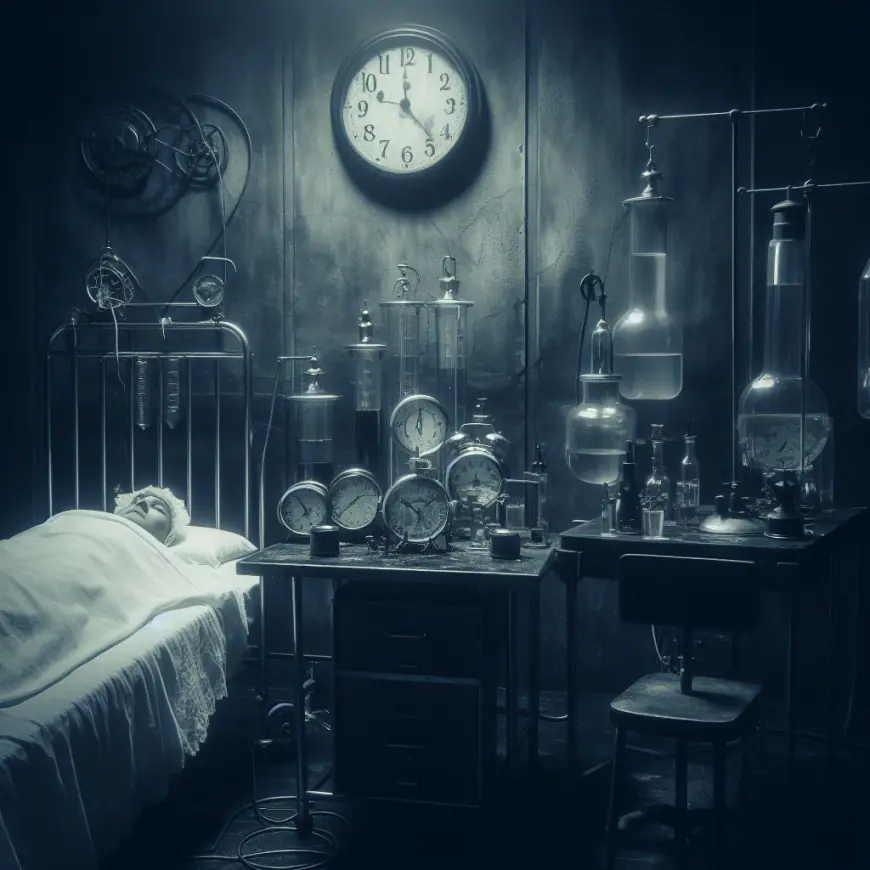Unveiled: The Chilling Russian Sleep Study
“Dive into the chilling story of the Russian Sleep Experiment and uncover the dark side of psychological research.”

The Russian Sleep Experiment: Unveiling the Depths of Human Endurance
Introduction
In the annals of urban legends and internet folklore, few tales are as chilling and controversial as the Russian Sleep Experiment. This narrative, which emerged from the shadowy corners of the web, speaks of a harrowing scientific endeavor aimed at exploring the limits of human wakefulness. But what truths lie beneath this spine-tingling story? Let’s delve into the depths of this enigmatic experiment.
The Origins of the Legend
The tale begins in the aftermath of World War II, within the confines of a covert Soviet research facility. Here, a group of scientists embarked on a groundbreaking study to test an experimental stimulant designed to inhibit sleep. The subjects? Five political prisoners deemed expendable by the state.
The Experiment Unfolds
As the experiment commenced, the subjects were placed in a sealed environment where the sleep-inhibiting gas was administered. The initial days passed with little incident, but as time wore on, the psychological fortitude of the participants began to fracture. Paranoia set in, and the once-cohesive group descended into madness.

The Descent into Madness
The lack of sleep took a monstrous toll on the subjects. They exhibited extreme behavior, mutilating themselves and displaying heightened aggression. The scientists could only watch in horror as the experiment spiraled out of control.
The Aftermath and Ethical Implications
The experiment’s conclusion was as grim as the process itself. The subjects, driven to the brink of insanity, met tragic ends. The ethical implications of such an experiment are profound, raising questions about the lengths to which humanity will go in the pursuit of knowledge.
The Debate Over Reality and Fiction
While the Russian Sleep Experiment is widely regarded as a work of fiction, its impact on popular culture is undeniable. It has sparked debates on the ethics of human experimentation and the boundaries of psychological resilience.
The Psychological Impact of Sleep Deprivation
The human mind is a delicate tapestry, woven with the threads of consciousness and the need for rest. Sleep deprivation, as purportedly studied in the Russian Sleep Experiment, can unravel this tapestry, leading to severe cognitive and emotional disturbances. Hallucinations, paranoia, and a breakdown of mental faculties are just the tip of the iceberg when it comes to the consequences of prolonged wakefulness.
The Science Behind the Sleepless Mind
Without sleep, the brain begins to malfunction, affecting judgment, memory, and coordination. Prolonged wakefulness can lead to a condition known as ‘sleep debt,’ which the body cannot easily repay. The experiment’s narrative serves as an extreme example of how sleep is not just a luxury but a fundamental human necessity.
Historical Context and Plausibility
While the Russian Sleep Experiment is widely considered a work of fiction, it is rooted in a time of intense scientific exploration—and exploitation—during the mid-20th century. The Cold War era was rife with research into psychological warfare and human endurance, lending a veneer of plausibility to such a macabre tale.
The Era of Human Experimentation
The 20th century witnessed numerous unethical human experiments, from the Tuskegee Syphilis Study to the MKUltra program. These real-world events provide a historical backdrop that makes the Russian Sleep Experiment all the more believable and disturbing to the modern reader.
The Legacy of the Legend
The Russian Sleep Experiment has left an indelible mark on the collective psyche, serving as a grim reminder of the potential excesses of scientific inquiry. It challenges us to consider the moral dimensions of research and the sanctity of the human spirit.
A Reflection of Societal Fears
The story taps into deep-seated fears about government control, the abuse of power, and the unknown capabilities of the human mind. It’s a narrative that compels us to question the limits of human experimentation and the ethical responsibilities of those who wield scientific authority.
Final Thoughts
As we conclude this exploration of the Russian Sleep Experiment, we are left with more questions than answers. The line between fact and fiction may be blurred, but the moral of the story is crystal clear: in the pursuit of knowledge, humanity must tread carefully, lest we lose ourselves in the darkness of our own making.
Conclusion
The Russian Sleep Experiment stands as a dark fable, a cautionary tale of science unchecked by morality. Whether fact or fiction, it serves as a stark reminder of the potential horrors that can arise when the sanctity of the human mind is violated in the name of progress.
What's Your Reaction?






































